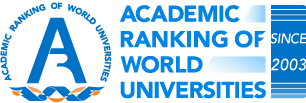ShanghaiRanking Academic Excellence Survey 2018 Methodology
The Story Behind
ShanghaiRanking Consultancy began to publish rankings of world universities by academic subjects in 2009. The first batch of ranked subjects are Mathematics, Physics, Chemistry, Computer Science and Economics/Business. It then took ShanghaiRanking 7 years to extend the subject rankings to cover seven engineering subjects in 2016. The main reason for the slow progress of expanding our rankings into more subjects was for the consideration of methodological consistency. One unique feature in the methodology of ShanghaiRanking’s ARWU and subject rankings is the use of Award indicator, such as counting the universities’ staff winning Nobel Prize in Physics, Chemistry, Physiology/Medicine, Economics and Fields Medals in Mathematics. However, it was unknown whether there are Nobel Prize like awards or at least globally recognized ones in many other subjects. It was under this context, ShanghaiRanking decided to engage academic leaders from the top universities in the world to identify these awards and possibly other important measures of academic performance together.
Participants
By May 2018, we have surveyed more than 3500 professors from top 100 universities in the world. They are from different subject fields and many of them are the chairs and heads of the faculties or departments they are at. Different from a conventional survey, we publish the names and affiliated institutions of all participants. But we do not publish their answers to the survey questions. Therefore, the results of this survey are from reputable and influential leaders covering different subject fields and are presented to the public in a transparent way. The survey is sent to each participant’s work email with a customised link with the participant’s personal information.
Questions
The survey asks two sets of questions, none of which are compulsory questions. The first question asks the participants to list the top tier journals in their primary subjects. The second question asks the participants to identify the most influential and credible international awards in their primary subjects. Researchers from Computer Science & Engineering are also asked to name the top tier conferences in this subject.
Criteria
A journal is considered as a Top Journal if:
1. It has more than one vote in one subject. AND
2. It has 50% or more votes in one subject OR It is the top voted Journal in one subject.
An award is considered as a Top Award if:
1. It has more than one vote in one subject. AND
2. It has 50% or more votes in one subject OR It is the top voted Award in one subject.
A conference is considered as a Top Conference is:
1. It has more than one vote.
*After careful consideration, journals with two or more votes in Mechanical Engineering are all considered as Top Journals in 2018.
Results
By May 2018, 347 professors have participated in the survey. They are from 53 subjects, 69 universities, and 11 countries. The results highlight 123 top journals in 41 subjects, 27 top awards in 24 subjects, and 14 top conferences for Computer Science & Engineering.
Updating
The survey will continue to be updated. Professors from Top 100 universities in the world are welcome to sign up on our official website and submit your opinions online.

